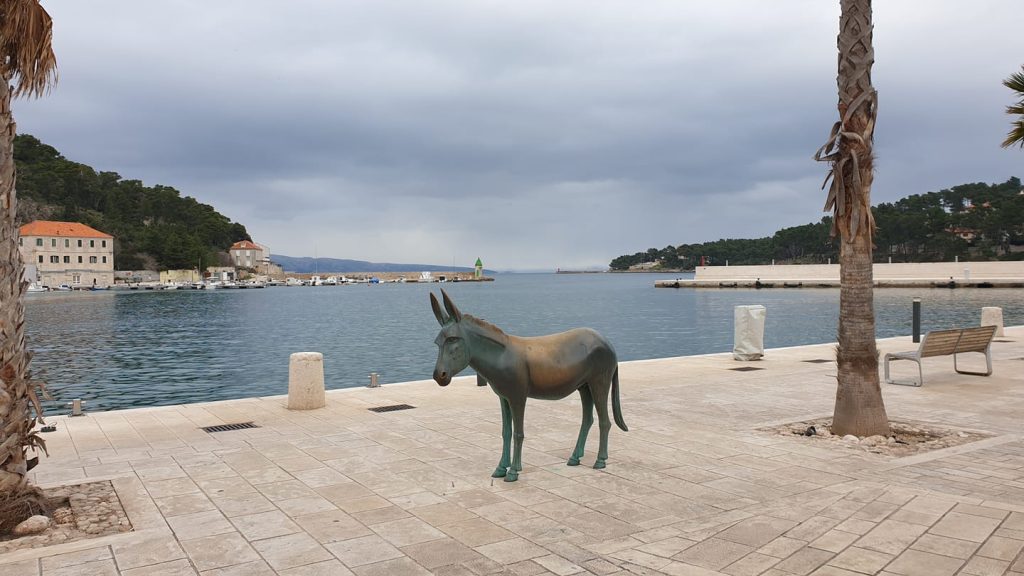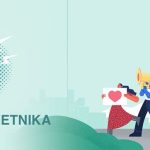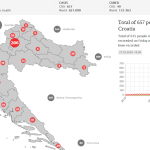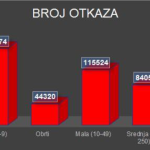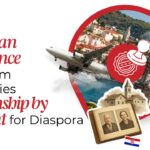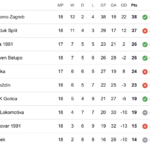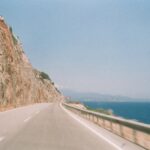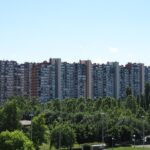As the conspiracy theories continue to circulate regarding coronavirus, I am beginning to think that this pandemic is a university degree course in the study of human behaviour at the University of Aliens on Mars.
Subject: How would humans react to battle a deadly virus spreading with ease all over their planet? A pandemic that knows no politics, emotion or mercy.
A year into the pandemic, these alien students might be surprised to learn that humans still could not agree on some basic things regarding the battle, such as the benefits or otherwise of wearing masks. Or that a nation’s politics and a general election could completely reorient a national strategy. But alien students taking a closer look at a case study of a country like Croatia might find the nuances of the battle against the pandemic rather fascinating indeed. And completely illogical.
Before I continue, let me say that I don’t have a public position on the pandemic. Not that my opinion matters anyway as a non-expert on the subject (there are enough scientists and Facebook experts out there if you are looking for an opinion). I believe in making the information as available as possible and letting people draw their own conclusions. But as I travel a little around the country and the wider region, I do see so many inconsistent measures that completely undermine the whole point of the exercise. Inconsistent measures which are now pushing many people to boiling point.
One of the things I have observed these last 12 months as people travel a lot less, is that people become somewhat accustomed to the measures imposed upon them and they have little appreciation of how things are elsewhere. I was fortunate enough to spend the first lockdown on sunny Hvar, 63 days of being chained to a laptop with an hour by the Adriatic each evening on a beautiful island devoid of tourists and with just two cases of the virus during my stay.
I remember how nervous I was taking the ferry to Split when it came time to leave. Having been sheltered from the virus by my island status, how would things be on the mainland? I remember being shocked at coming to Zagreb that evening and seeing a bar packed full of people rubbing against each other without a mask in sight.
It was the same feeling in mid-June on a business trip to Brussels and Munich. While the Germans were taking things very seriously with masks, early restaurant closures and contact details taken in every establishment, things could not have been more relaxed in Brussels. Some very different approaches to the same problem, our alien students would have noted.
I have spent much of this past few months on my sofa in Varazdin, rarely venturing out of the house. The cafes and restaurants of Croatia are once more closed for about two months now, and the incentive to meet people has diminished due to the virus threat, cold weather, and simply that there is nowhere to meet.
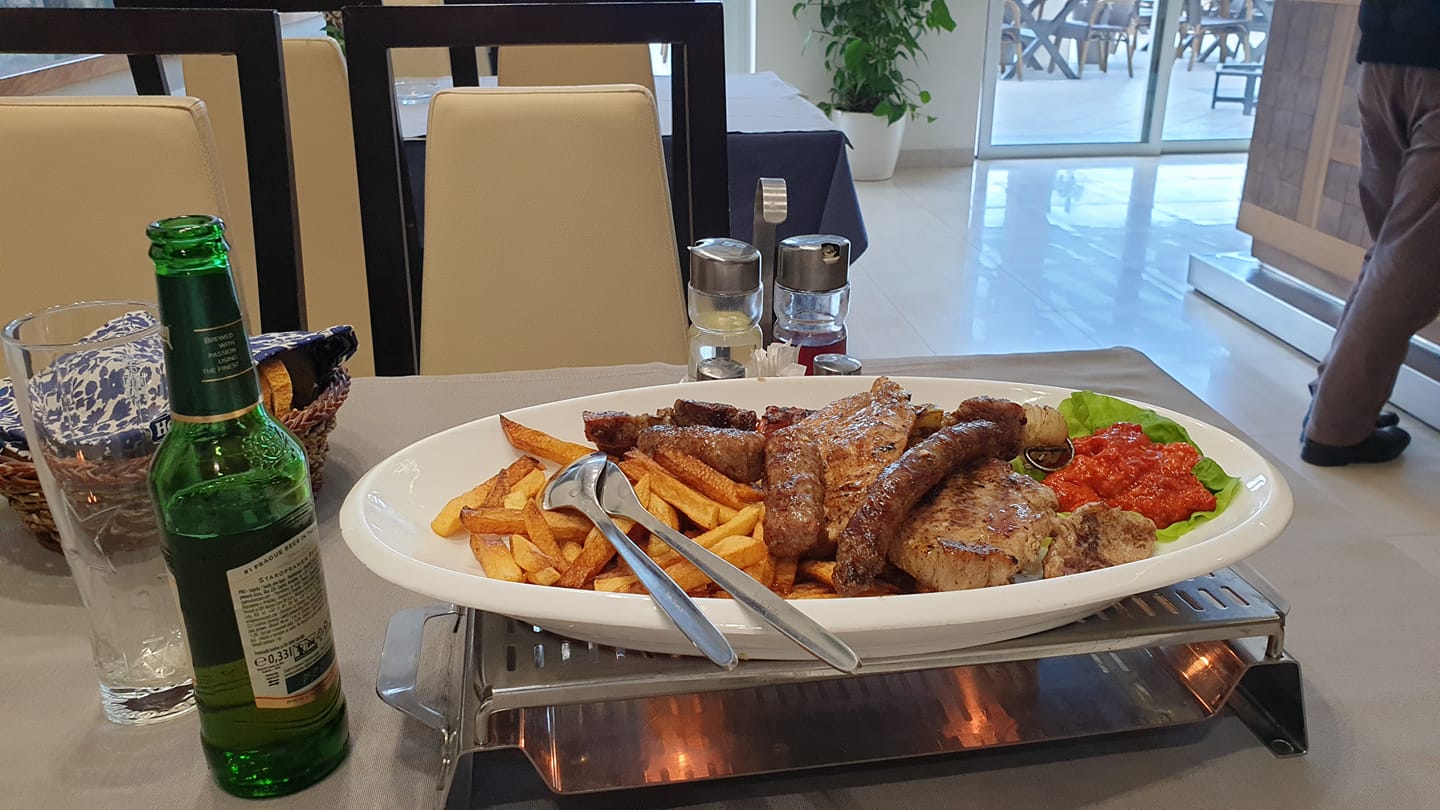
After weeks of this new normal, I went on a business trip to Albania via Bosnia and Montenegro. I was surprised in Neum that my usual restaurant stop was open for business, and I tucked into a mixed grill with a cold one with relish. What a completely strange feeling!
It was the same in Montenegro and especially in Albania, where I spent two very pleasant days conducting my business from distance with people across cafe tables. Apart from getting the business done in civilised surroundings, I also began to relax mentally, able to destress over a pint in a relaxed atmosphere. The old normal. These neighbours of Croatia all had fully open bars and restaurants, combined with a 10pm curfew. So people could go about their business, socialise a little and then be home before things got rowdy. Rather than go to other people’s houses and drink to all hours as there was nowhere else to go.
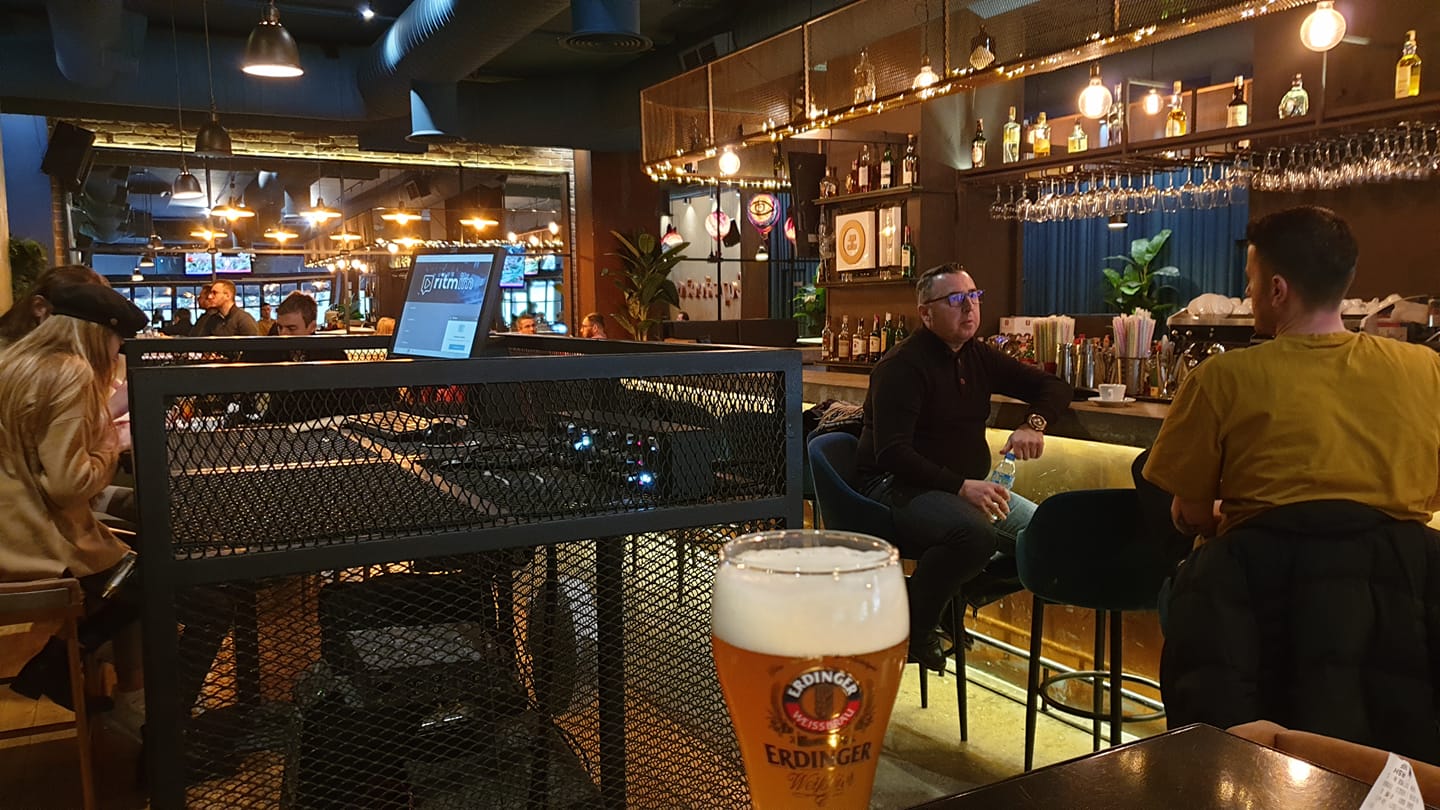
Having had a glimpse of my former life, I found myself wanting more of it on the drive back to Croatia, and the island of Hvar. It is a long drive from Tirana, and the only place to stop on the way back for lunch once more was Neum, I reflected at the Croatian border as I showed my negative PCR test – everything was of course closed in Croatia.
Having spent weeks on my sofa but now back to life after my Albanian escapade, I was curious how people were socialising in Croatia with all cafes closed. The answer in Jelsa was that there were now two spots to socialise. The bus station has a vending machine selling coffee, where locals go of a morning and afternoon to meet, huddling together much closer than they would in an outdoor cafe. And for a wider choice of refreshments, the petrol station just out of town is another congregation point. Both are much less pleasant than the normal cafe, both huddle people closer than they otherwise would be on the cafe terrace.
An odd thing, the aliens might have noted – in Croatia, you can order a takeaway coffee from a bakery but not a cafe.
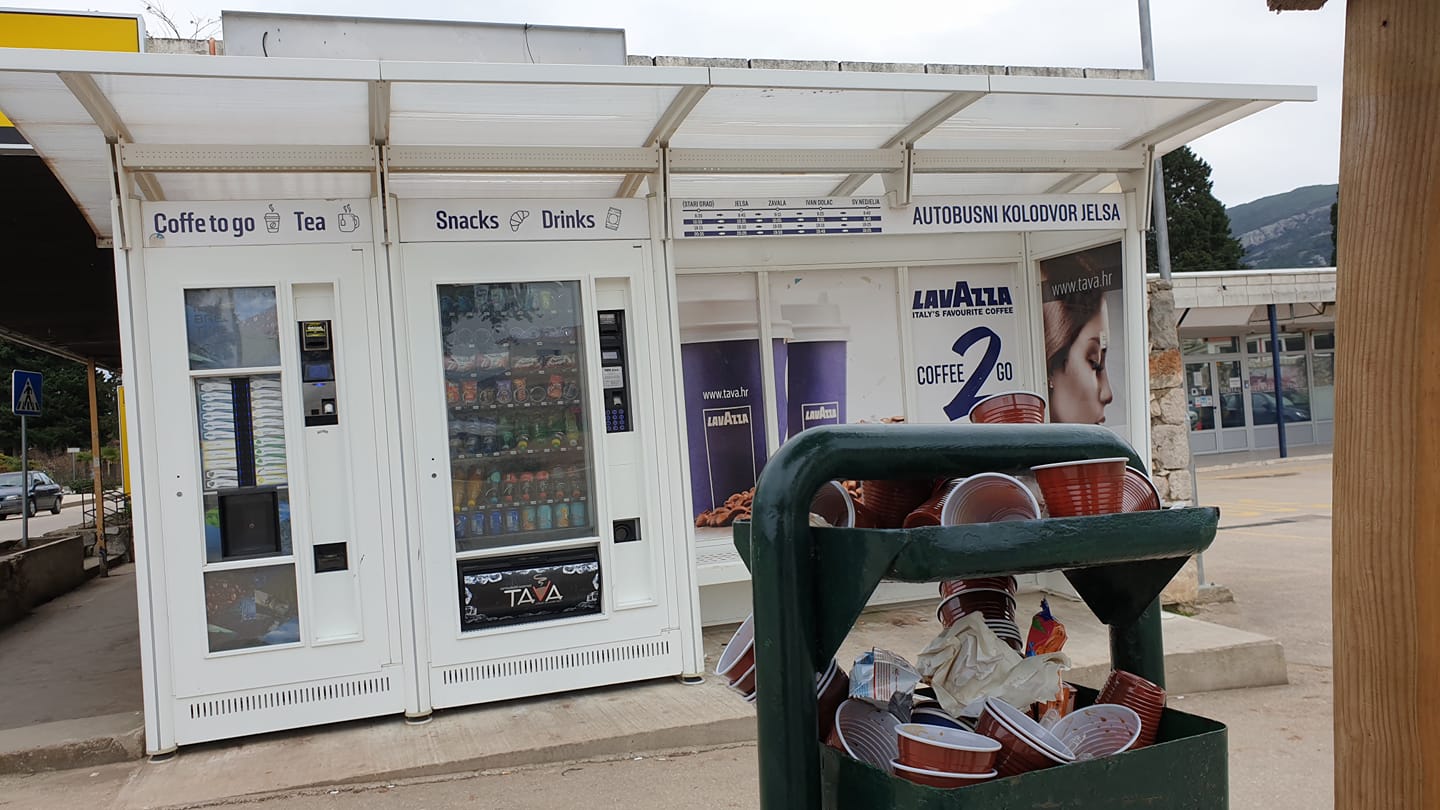
Next stop Split, where I had a meeting at 07:45 in temperatures of minus 1. Where to go for the meeting, those Tirana cafe memories fresh in my head? I asked a local hotel if it would be possible to sit in the reception area, without success. In the end, we clocked up 6,000 steps walking the supermarket aisles of the local Spar for an hour.
Meanwhile in Zagreb, as the cafes remained closed, it was perfectly ok to buy a beer at Konzum and sit on a bench in the park with a friend, just metres from a cafe terrace that had been forced to close for weeks. How would those alien students quantify the difference?
Meanwhile, if you want to forget your current woes and indulge in a little wellness, you can visit a well-known wellness retreat in Croatia as a non-resident. 95 kuna buys you all-day access to the pool and water slides, and for 195 kuna, you can get all day in the saunas as well. Much warmer than huddling around a vending machine coffee at the bus station.
As non-residents, access to the restaurant is restricted, but if you are staying in the hotel, then the restaurant is open. If you have a business meeting with international partners or investors, you can only have it in the hotel restaurant if you yourself are a paying guest. Otherwise, you can check out the special offers in the local Spar as you wander around.
Perhaps the most absurd example of attempts to contain the virus concerns a recent experience with the rideshare app, Bla Bla Car. Over Christmas and before the Petrinja earthquake, travel between counties was heavily restricted, A friend was going from Varazdin to her home in Zagreb and so was allowed to cross the county border. She booked a seat on Bla Bla Car in a car with just the driver. An hour before departure, she went to check the departure point in town and was surprised that there were now five people in the car. Apart from the corona risk, would it not be a problem crossing the county border, she asked the driver?
“Ha, not at all, I do this trip 4 times a day with a full car each time.”
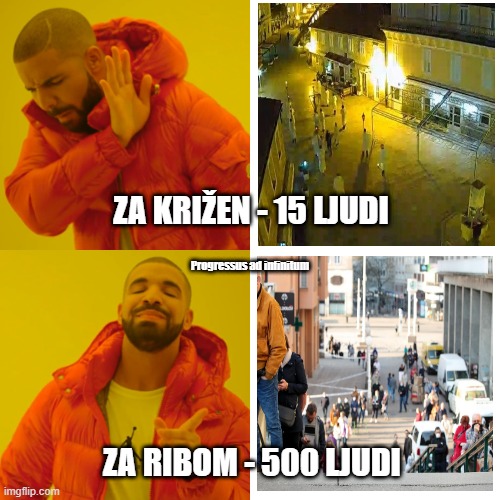
(Last year’s Za Krizen procession on Hvar caused an outrage when it went ahead, even with its severely restricted numbers of 15 per procession. but nobody seemed to mind the hundreds of people queueing for shopping in Zagreb the following morning. Read more in Jelsa Za Krizen, Croatia Not Wuhan & Cabin Fever Perspectives.)
Not that it is important to the non-discerning virus, but our alien students might note two other things of significance to the human decision-making. One is the economic impact that all this is having on many small (and larger) entrepreneurs, cafes, restaurants, gyms and other service industries, which are prevented from operating when similar activities are ongoing all around. Their anger is building, and so is their desperation. Various mass openings were planned for today, with most deciding against due to the threat of draconian fines and arrest by the authorities. One gym owner in Zagreb did open his doors, but not for long, and he is now in custody and facing a two-year prison sentence according to Croatian media.
The other issue which is become bigger as every day goes by is the mental pressure this whole pandemic is putting on people. Lack of job security, everything closed, lack of human interaction. I honestly was shocked at what a powerful impression those days of normality in Albania made on me. And it made me crave them more and more. They are simply not available in Croatia at present.
I took my kids to school this morning. As we cleared the snow in temperatures of minus 8, I asked them how they felt after weeks of online schooling. Less than enthusiastic, came the reply. It was going to feel weird being with friends in real life. School – and friendships – are much better on Zoom these days, you can talk more to your friends that way and have more of a laugh.
Quite what the longterm effects on this lack of interaction and school time will have on our youngest is a big unknown.
The UGP Voice of Entrepreneurs Association is gaining in strength, and it has called for people to come to protest on Wednesday on the main square in Zagreb. It will be a protest TCN will be following and reporting on.
(Meanwhile, in Madrid, the things you can’t do in France)
Meanwhile, in the University of Aliens on Mars, homework has been set:
Looking at the human behaviour and the inconsistent measures in Croatia, imagine you are a strategy consultant for COVID-19. Name 5 strategies to help the virus spread using human failings, and elaborate on each.
I wonder if any of the students will focus on religion. Cafes may be closed, but churches are a great congregation point.
Should we be in total lockdown? Perhaps. Should everything be open? Perhaps. Should it be somewhere in the middle? Perhaps.
But whatever the strategy is, let’s be consistent, transparent and not discriminate. As those students on Mars will tell you, the virus does not discriminate or get beaten by inconsistent measures.
For the latest on coronavirus in Croatia, follow the dedicated TCN section.

